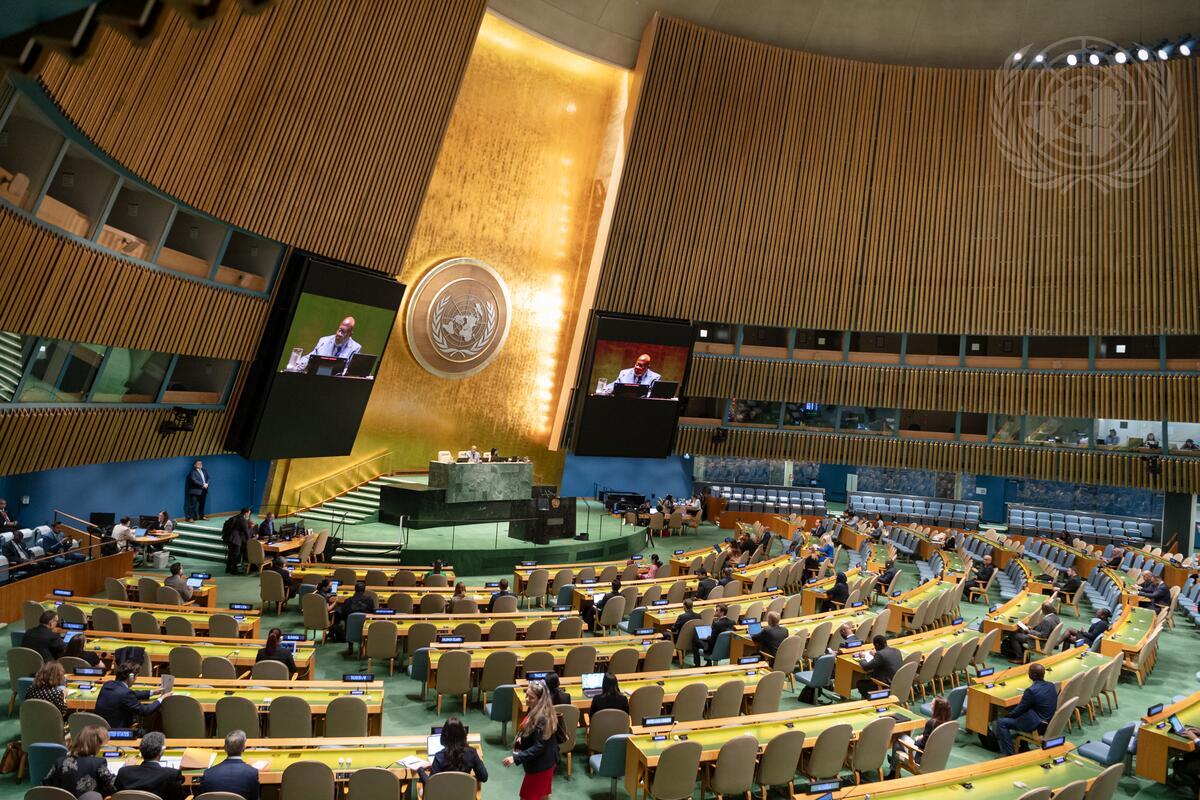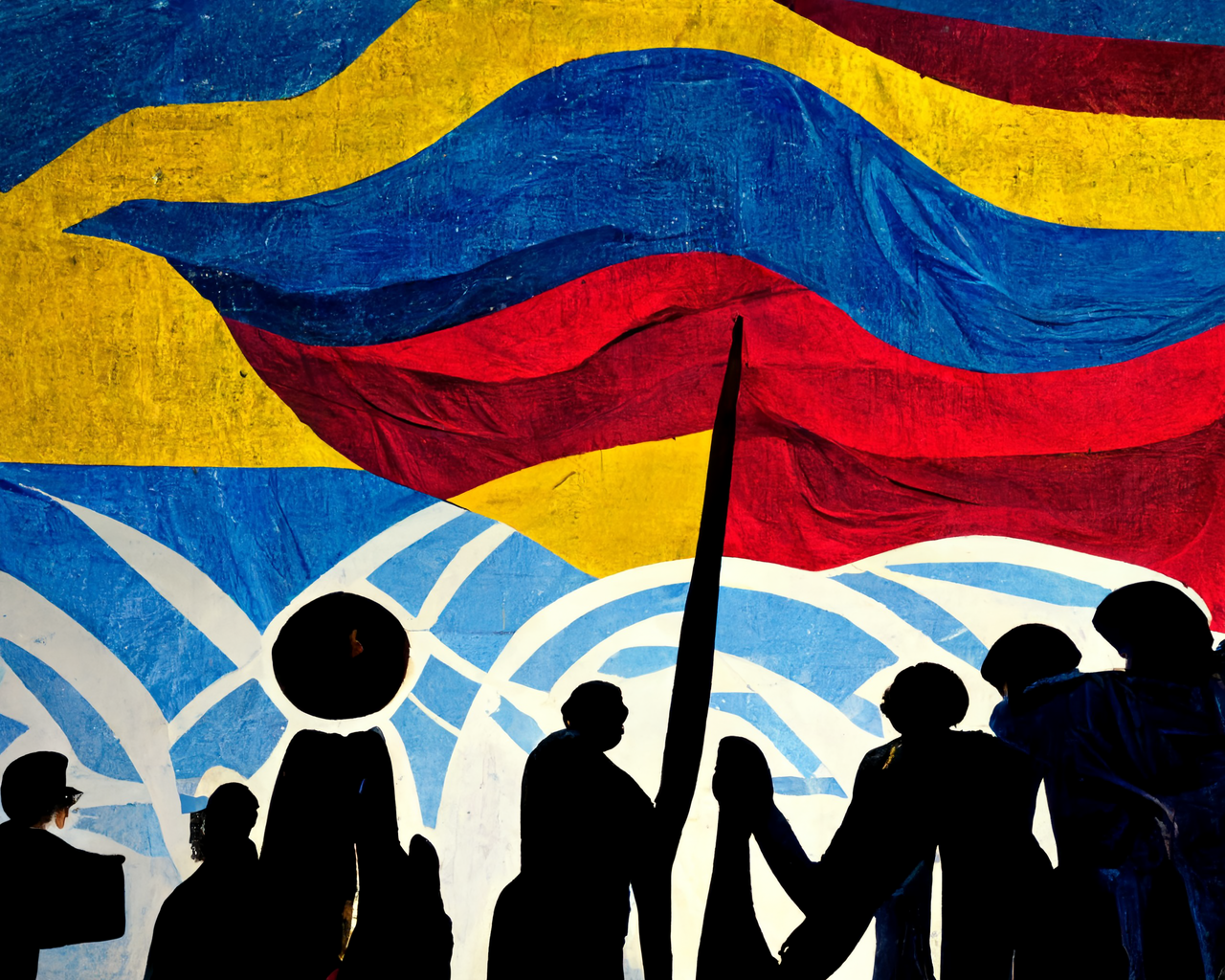
Launch of the Network of defenders rights' protection in Africa
ISHR, in collaboration with partners, has established a network of legal professionals for the protection of human rights defenders in Africa.
UN Photo/Rick Bajornas

In a first-of-its-kind investigation into the closed-door negotiations of the UN’s budget in New York, ISHR uncovers how a small group of States - led by China and Russia - have coordinated efforts to block and slash funding for the UN’s human rights work through political manoeuvring and influence. At a moment of sweeping UN reform and financial crisis, these efforts - compounded by the US failure to pay their UN membership fees and outstanding debts - pose an existential threat to the UN’s human rights system.
A groundbreaking report published by ISHR today, reveals for the first time how a small group of States led by China and Russia are obstructing and hijacking budget negotiations at the United Nations (UN) to defund human rights bodies and investigations. At a time of UN financial crisis and reform, this imperils the UN’s capacity to prevent, investigate and promote accountability for grave human rights violations, including genocide, as well as to work with governments to promote human rights and the rule of law on the ground.
The UN’s historically underfunded human rights work now faces an existential threat due to budget cuts under the UN80 Initiative and the UN’s liquidity crisis, fuelled by the failure of the United States (US), China and other countries to pay their contributions in full and on time.
Drawing from dozens of interviews and combing through official documents and internal budget negotiation documents from 2019 to 2024, ISHR’s report ‘Budget Battles at the UN: How States Try to Defund Human Rights’ finds that China and Russia have led a sustained effort to build influence, disrupt proceedings, and politicise technical discussions at the UN General Assembly’s Fifth Committee (5C), where States negotiate the UN’s budget, and its little-known yet influential advisory body, the Advisory Committee on Administrative and Budgetary Questions (ACABQ).
Over the past decade, Chinese influence within these bodies has expanded sharply, the report shows. Beijing has invested heavily in building its representation at the 5C, the ACABQ and other related bodies to push heavy budget cuts to human rights. Russia has frequently played the role of outspoken spoiler in negotiations, enabling China to deploy its influence more quietly but effectively behind closed doors.
‘Russian and Chinese diplomats have weaponised UN budget negotiations to serve their own interests and shield allies from scrutiny, at the expense of human rights. Budget negotiations should be solely guided by the goal of adequately funding the UN’s work, not serving as a political tool to weaken accountability and rights protection.'Madeleine Sinclair, Director of ISHR’s New York office
At 5C sessions, China and Russia have repeatedly introduced extreme proposals to slash human rights funding, backed by a number of authoritarian States, while obstructing efforts by other States who support human rights funding to reverse disproportionate cuts recommended by the ACABQ.
These joint efforts aim at cutting funding for the Office of the High Commissioner for Human Rights (OHCHR), especially its work on civil and political rights and non-discrimination, and defunding investigations established by the UN Human Rights Council on grave rights violations committed by Russia, Belarus, Iran and North Korea, among others.
Interviews conducted by ISHR also shed light on China’s enormous influence among developing countries in the Group of 77 (G77), to which Beijing has pitched its efforts to cut human rights funding as a push for ‘efficiency’ and prioritisation of UN development initiatives. As of 2025, the share of China’s expected contributions to the regular UN budget has risen from 15% to 20%, consolidating its spot as the second largest contributor after the US, whose share stands at 22% – the limit a single State’s contribution can reach.
Beyond the 5C, China and Russia have also pushed anti-rights language and stalled discussions on human rights programming at the Committee on Programme and Coordination (CPC), another little-known yet important UN body, while China has used its seat on the UN Board of Auditors in an effort to closely monitor OHCHR and to seek access to confidential staff information.
Meanwhile, other States, such as Israel, have increasingly turned the 5C into a microcosm of wider geopolitical divides, calling for votes to attempt defunding specific human rights investigations that are inconvenient to them, so far without success.
‘The UN has never faced a greater challenge than the convergence of China and Russia’s longstanding anti-rights agenda and the Trump administration’s reactionary crusade and willingness to defund the UN altogether. This report should be a wake-up call: unless committed States invest significantly in funding and defending the UN’s human rights pillar, others will capture it for their own interests.’Raphaël Viana David Programme Manager at ISHR
The report finds that years of underfunding and attacks on the UN’s human rights budget are now being compounded by a severe liquidity crisis triggered by US and Chinese late or non-payment of dues, while the United Nations undergo urgent reform.
Since taking office in January 2025, the Trump Administration has launched repeated assaults on UN bodies, often on grounds of an alleged ‘anti-Israel bias’, abruptly blocking the payment of overdue contributions from 2024 dues and all of the US contributions for 2025, while cutting nearly all voluntary funding to the UN. As the US, the largest contributor, withholds this vast portion of the UN budget, Beijing’s increasingly late payments risk depriving the UN of over 40% of its operational cash flow for 2025.
Meanwhile, China’s paying in full but extremely late has a similar result to not paying contributions in full, as a little-known State-imposed UN rule perversely returns unspent cash – that could not be used as it came so late – to Member States in the form of credits to future dues. In 2024, China paid its contributions on 27 December, four days before the year’s end.
The broader US withdrawal from multilateralism also enables China and Russia to further grow their influence in shaping a more State-centric UN, at the expense of civil society and the universality of human rights.
'The US is gambling on the entire UN human rights architecture to shield Israel from scrutiny for its genocide, and advance the Trump’s administration vision for human rights. Member States have a collective duty to stand ground and safeguard funding for the UN’s vital human rights work at this critical juncture.'ISHR Executive Director Phil Lynch
As of 3 October, only 139 Member States (72%) have paid their dues in full. Nine of those who haven’t paid yet are members of the Human Rights Council. The US still owes USD 1.5 billion to the UN’s 2025 regular budget, while China owes USD 192 million, and Russia USD 72 million.
The resulting shortfall has already cut OHCHR’s budget in real terms by 13% and 27% in 2024 and first half of 2025 respectively. The impact on human rights protection globally has already been felt, from stalled inquiries on serious abuses in places like the Democratic Republic of Congo, to drastically reduced capacity to investigate and document atrocity crimes in Russia/Ukraine and Israel/Palestine.
The funding and budgetary crisis fuelled by the US, China and Russia is also shrinking space for victims and civil society participation at the Human Rights Council, and diminishing support for at-risk individuals.
US cuts also forced the UN into an unprecedented race for reform through the UN80 Initiative, an internal reform drive to make the organisation more efficient and effective, yet so far focused primarily on austerity and cost-cutting.
Initial cuts proposed by the Secretary-General in September slash the human rights budget by 15%, a higher percentage than cuts proposed for the UN’s development and peace and security work. Further cuts are expected once the ACABQ reviews the Secretary-General’s proposals, and States table additional reform proposals under UN80 in the coming months.
‘China and Russia have long exploited UN processes in order to spin a web of influence against human rights progress, and now the Trump administration is moving in that same direction. But this is not irreversible. The UN80 Initiative must be more than a hunt for "efficiency": it should be a collective effort towards meaningful, human rights-driven reform. For this, States, and particularly Global South countries who have a clear stake in having strong, responsive UN human rights bodies, can still take back the space and ensure funding for a UN that advances human rights protection on the ground for all.'ISHR Executive Director Phil Lynch
Funding for the UN’s human rights work is on the brink of collapse at a time when it is most needed to address global crises. UN Member States have a collective duty to safeguard human rights, including by:

ISHR, in collaboration with partners, has established a network of legal professionals for the protection of human rights defenders in Africa.

Venezuela is at a complex political juncture. In this context, sixteen national and international civil society organisations have put forward a ten-point list of priority demands.

Fifty organisations urge the UN Human Rights Council to urgently convene a special session to address an unprecedented escalation in mass unlawful killings of protesters in Iran.